Hello and welcome back to another episode of De-Stigma Dialogues! So let me tell you what happened last week, I hit a monumental 100 subscribers! Mind-blowing to me because you know Imposter Syndrome… Anyway, I want to say thank you again to all of you who subscribed and choose to continue this journey. As I write this, I’ve lost a couple Dialoguers, let’s have a moment of silence for our fallen comrades… Honestly, I can’t say that I am surprised because that aligns with my expectations. I would be a hypocrite to deny that the numbers matter. It was not something I initially or intentionally put a lot of thought into, but I was amazed and chuffed to see my number of subscribers rise. It validated my purpose and yeah, kinda stroked the good ole ego. As I’ve said time and time again, when I started this I didn’t know if it would resonate with anyone but I did think and I do still believe that this podcast / book club can be of service. That said, I recognise that engagement matters more and so I cherish those that reach out if only to give a thumbs up or tap the small heart. I also appreciate those that share anonymously because that is how this ‘movement’, yes, I’m calling it a movement… lofty I know but I deem it accurate. Talking out loud about these stigmas and themes is a daring act and as women we have to keep pushing against an envelope that is seeking to seal our fate and silence our voices. So although I am disappointed, I know that this journey is not for the faint of heart. I do not expect you all to agree with everything that I put forward, but I do hope that it encourages more and more judgement-free and respectful dialogue, wherever you are in the world and your stage in life. While I do believe everyone capable of this level of discourse, I do recognise that not everyone is willing to have these hard conversations and that is perfectly alright. So to those that have stuck around, an enormous thank you and to those that bowed out, I wish them well. Now, back to the trenches and our dialogue on Feminism…
Last week, I gave you definitions on the term and some background into my initial experience with the term. I mentioned that much of my resistance to being labelled a feminist came from the narrative that surrounded the term as dictated by society at large. Here we are decades later, and though my understanding of what it means to be a feminist has broadened, I am saddened that society’s narrative hasn’t evolved. There are still legions of people of both genders that dismiss the term and its tenets, or belittle and discredit it. I do keep saying both genders because I used to believe that feminism was something that all women would understand and support, even if they did so from a place of adjacency (as I did in my youth). But I have come to realise that not all women believe in equal rights for all women. This is something that took a lot of wind out of my sails because I couldn’t and to some extent, still can not understand how some women can be against a movement that seeks to protect women’s autonomy over our own bodies and minds, and ensures that we are given the same opportunities in this life as men.
I remember a quote by Maya Angelou that said, “I am a feminist. I’ve been a female for a long time now. I’d be stupid not to be on my own side.” This quote directly speaks to what I’ve come to call the myth of sisterhood. I used to fully buy into the narrative of sisterhood, as I said earlier, I could not and still can’t wrap my head around the fact that there are women that deny the importance of the feminist movement. I believed there was a latent, silent narrative that women will innately and instinctively support one another. However, history and my own life experience has shown me that is not accurate. I do believe that a ‘sisterhood’ is possible, but I also know that to some extent this is a myth, because like the word ‘resilience’ sisterhood, also comes with qualifiers. Remember feminism is a response to a narrative, and within a narrative, there are sides, right and wrong, good and bad, heroes and villains. Narrative is nourished by competition. So it makes sense that even within feminism, a movement that seeks the amelioration of all women, there will be levels of support or lack thereof, determined by identity and perception, social standing and conditioning. I’m guilty of it, in fact we all are, you know that level of judgement brought on by a narrative that either told you that you were better than someone or that someone was better than you. That narrative that we were taught as girls that placed us in direct competition with each other and fostered the ‘pick-me paradox’. This paradox that has women competing with each other for attention and the ‘male gaze’ directly impedes the notion of ‘sisterhood’. Many women will categorically support a man over another woman. I can’t say that I justify it, or even understand it but I have been guilty of it. I have said that women bosses are the worst based on my experience. I’ve said that teen girls are terrible compared to boys. I chose Angelina over Jennifer. These choices that we all make against other women perpetuate a narrative that undermines trust. How can I support you when I can’t trust you? These choices that we are all led to believe belong to us, in fact, belongs to the narrative given to us by society.
We are told that we should be threatened by others that do not conform to our narrative. We are told that it is safer to colour within the lines and side with the man who can protect you and keep you ‘safe’. We are told that we are too weak and too emotional to lead so we put on the leash and allow ourselves to be led, then go on to pummel any woman who refuses to. Society and the narrative of the patriarchy, yes the patriarchy, has ensured that we become our own worst enemy. How then can we truly have a sisterhood, when we were conditioned to actively work against one another? I mean we still subscribe to the fickleness of a society that defines our beauty, our bodies and our capabilities. We dance around in delight when one of us falls at the one yard line after society moved the goalposts. Sisterhood is something that society tells us we should cling to and believe in, while some of our own are bringing logs to the bonfire we are being roasted on.
Just as we are conditioned to compete with each other, we are also conditioned to be polite. Recently, my daughter pointed out to me my excessive use of the word sorry. We were passing each other in the kitchen and she slightly bumped my shoulder and without even thinking, sorry flew out of my mouth. She stopped me and taught me one of the most valuable lessons I’ve learnt my whole life. There is absolutely no need for me to apologize for being here, for taking up space, for existing. What can I say, out of the mouth of babes, and I’m so proud! Have you ever, and ladies this is for you, but have you ever apologised when something happened to you not because of you? I’ll give you an example, years ago, I used to take a taxi to work or school, wherever, and this is in the Caribbean where you share a car with others. Everytime, I was squished into the middle of the backseat between two men, who of course thought nothing of man-spreading. Everytime, whenever the driver took a sharp turn causing me to barely touch any of the men on either side of me, I apologised if my knees couldn’t hold my bags. Coming out of an elevator, if I am sideswiped by a man in a hurry to get in because I took longer than a second to exit, I apologise. I’ve done it my entire life and it took my daughter to draw it to my attention. She told me it was a chronic mistake I made. Hmmmm… Did I mention I was proud?
That apologising gene where women are constantly placed on the bad foot, having to apologise for even breathing and at every turn, where did it come from? I’ve thought about it and I harken it back to Eve, if I am being honest. Ever since religion told us that Eve was to blame for everything wrong in the world, we women have been paying the price. Eve became the totem that each and every one of us are held against and told that we should be sorry for what she did because she was a woman that failed ‘her man’, and by extension, all women should perpetually apologise for that extra X chromosome. It doesn’t matter what it is, the woman is to blame. It is why we are a culture with a history of victim-blaming and scapegoating women. It is why we have a society that tells us that we should be forever grateful to be allowed to exist.
This apologising gene is irrevocably linked to the perpetual practice of gratitude. I recently read an article on Substack by Celeste Davis, (I’ll post a link in this week’s newsletter) that spoke of weaponised gratitude… let that sink in… In the article she made the very succinct point that in our society, women become villainised if they do not show what society deems a respectful amount of gratitude for their existence. She used the example of Nazanin Zaghari-Ratcliffe. In 2016, she was arrested and held on bogus charges in Iran as a pawn in a Government’s game of tit for tat. After 6 years of unlawful imprisonment, she was finally released and reunited with her family. When in a press conference, she called out the events that led to her eventual release, the public, again the public was enraged because she didn’t show sufficient gratitude for being released. Imagine that… you are wrongly imprisoned but don’t cry about the years away from your family, and the injustice that led to the debacle, instead fall on your blade in gratitude that you were even let go and saved from the unlawful captivity you endured for 6 years. Imagine the audacity of this woman to imply that she should be apologised to instead of being grateful for this injustice. Everyday, women go around in this world, apologising for living and existing while expressing gratitude for being allowed to. I mean, let that seep for a minute… In the same article, Davis used a quote that was like a spotlight being turned on in a darkened room, it comes from an anthropology professor by the name of Arjun Appadurai and it says, “Gratitude in most cases is considered an acceptance of permanent subordination and is therefore expected of those who are oppressed." - Like mic fuckin drop….
It is long established that women are the marginalised gender. Those saying otherwise, wake up. And those crying foul on the ‘woke’ movement, get a life. For far too long, the oppression of women throughout history has become tradition. We are not allowed to get angry. We must know our place. How dare we make noise? We should just CALM DOWN, right? I don’t know about you, but the minute anyone tells me to calm down, it’s the equivalent to waving a red fucking flag in front of a bull. Like how fuckin dare you, discredit and invalidate my feelings!! How fuckin dare you??? And you know what’s worse is when it comes from another female… Like bitch what??? Nuclear level getthefuckouttahere!! See what I mean…
Calm Down Syndrome is a result of the well used tool of the gaslighter in their efforts to control a female. It is no wonder that the term has become somewhat of a parody in being recognised as the exclusive ‘stick’ dipped in honey. Oftentimes, those that utter the two word phrase, feigns innocence with palms held up like they are the victim, when they inspired the volcanic eruption. It is society’s way of cementing the fact that women are over sensitive and emotional and volatile, unfit for anything that requires calmness and stability. This simple two word phrase that invalidates and discredits the feelings of someone is insidious and destructive to the identity of someone, and is trotted out each and every time a woman demonstrates anger. Females aren’t allowed this basic emotion, while men are allowed to swipe things off their desk, punch walls and slam doors. How dare women show they are angry about all the perceived ‘privilege’ the patriarchy has afforded us? Back to that gratitude right…
Now, in addition to the apologising gene, eternal gratitude, calm down syndrome and the myth of sisterhood, we must also be likeable, nice and good, so that we can be embraced by a society that systemically devalues us. To employ the twitter phrase, I was days old when I finally realised that good and nice are not synonymous. I know!!! My entire life I believed both terms to be interchangeable. I believed that if you were nice, you would obviously be good… I mean seriously, like what the fuck? I drank that Kool Aid tribe. I, like many women, equated being nice and likeable to being good. What a crock of bs? Remember the rhyme from a few weeks back about little girls being sugar and spice and all things nice, well that shit certainly did so much harm, it’s diabolical. Now, I am not saying that we should stop being nice and above all else we should aim at being good, but likeability is a farce. No matter what you do, if you, as a female, do not bend to the will of any man, you will become unlikeable and labelled my favourite derogatory, a bitch! I remember in my youth, being so concerned with being liked that I became a doormat. I stayed in toxic relationships longer than I should have. I held on to friendships that didn’t serve either party. I accepted invitations and suffered through events when I really wanted to be at home. I always thought of the other person’s feelings before my own discomfort and I did it with a smile on my face. If I did decline something, I would over explain why so as not to hurt the other person’s feelings. I bit my tongue when someone paid me a backhanded compliment. I shrugged it off when I was belittled, though that one especially hurts when it comes from a female relative. I tempered my enthusiasm, if someone else trivialised my excitement. I kept my opinions to myself, if I wasn’t asked for them, and if they were discredited, I didn’t fight for them. I was doing what I was conditioned to. Can I tell you what a relief it has been since COVID? Within that year of facing that pandemic, I started re-evaluating my energy. See when I was younger, I was nicer, I was more interested in pleasing everyone. I believed that I was likeable and nice and good and because of that, I would be in a happy functional relationship. I know… Fuck Disney! Anyway, the thing is I KNOW that I am nice, AND I am good, But now I don’t give a fuck if i’m likeable. Likeability is not something that men consider when they go into any situation, or even first meet someone. They are allowed to be unapologetically themselves. So I’ve decided that I don’t need to be liked by everyone. Whether or not I am liked will no longer carry the weight it did, because I am no longer allowing it to dictate how I value myself. Damn did I just lose a few dialoguers… Hmmm, think of it this way, how important is being liked when it comes to how you live in this world? Is people’s perception of you really that important and if it is, what does that say about you and how you value yourself? I remember in one of my first episodes a friend of mine warned me against coming off as ‘man-hating’ and ‘complaining’ and I edited myself (though another friend encouraged me to post it in a section called “Tell me what you really think” in the newsletter, so I did). My point in bringing this up is that as women we consistently monitor ourselves and others lest we veer into the offensive. You know something, so what if someone is offended… People are often offended when it comes to truth telling, and as women we are expected to tiptoe around other people’s feelings, especially the men's. I agree with my first friend that if something doesn’t add to the conversation, then why include it. Then again, why wouldn’t my thoughts and opinions add to a conversation? Is that what we are training our girls to do? To monitor themselves to ensure they remain likeable by society’s standards. Shouldn’t it be the other way around? Shouldn’t society welcome and value our opinions? Nigerian novelist Chimamanda Ngozi Adichie, said that we should teach our girls to reject likeability and to acknowledge that they deserve to take up space. And you know what, she is absolutely right. I wish I’d learnt that growing up, it would have taken a lot of grief off my plate. And you know something else I learnt recently and I think it prudent to pass along, ‘no’ is a complete sentence… mindblowing, isn’t it…
I know this was a lot, so we’ll take a pause here. Next episode I will wrap up this theme though like the others that came before, we know it will again pop in for drinks. This week’s newsletter will be available tomorrow. I will include a link to the article on Weaponised Gratitude and some other bits and bobs. Women, girls, ladies, above all else, remember we are magic and we deserve that acknowledgement… Until next time, continue to talk out loud and SPARKLE like an ANIME UNICORN…

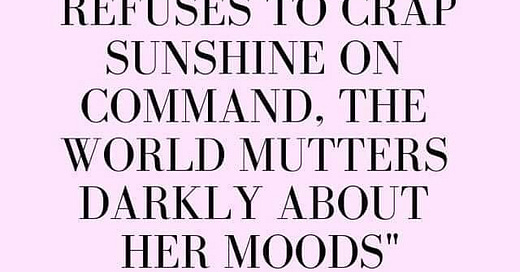



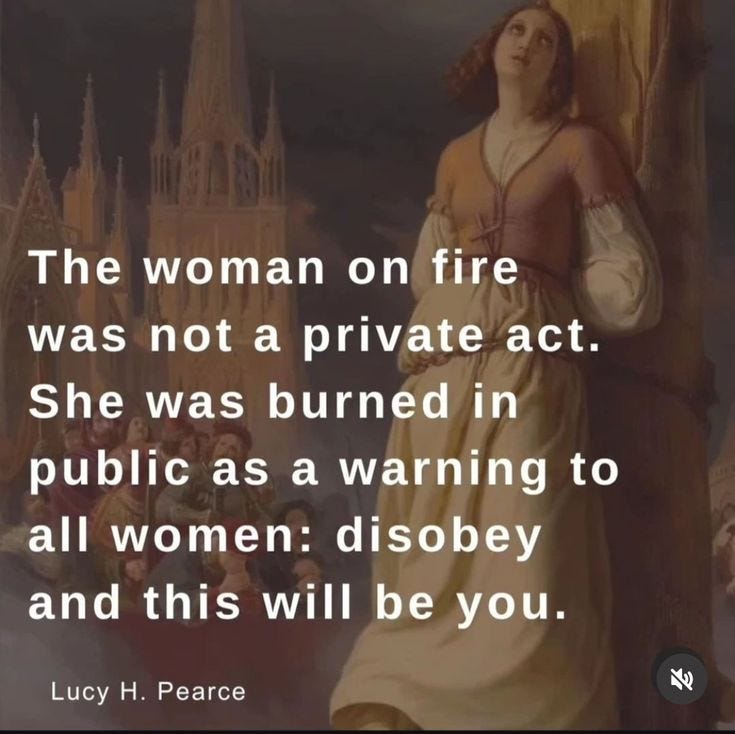
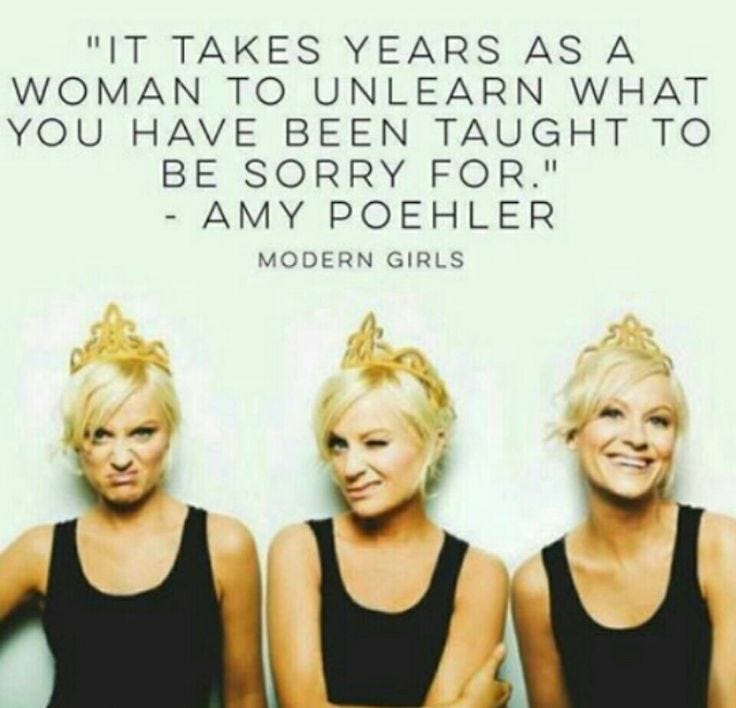
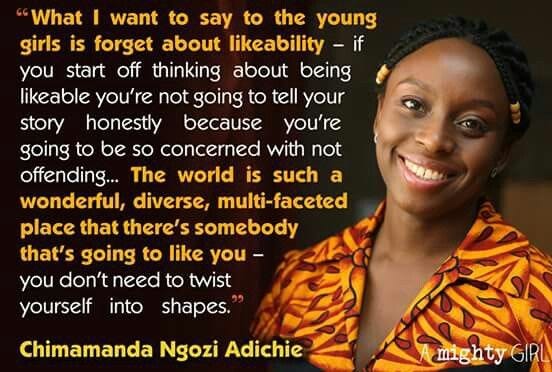

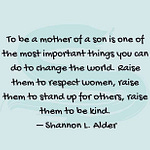

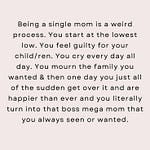
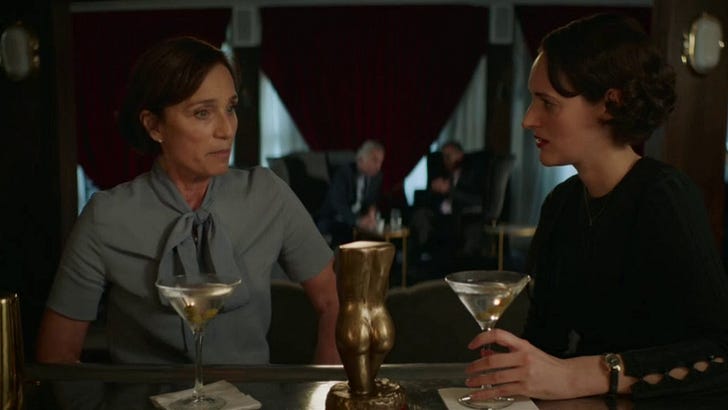


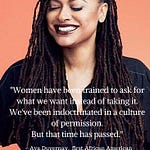
Share this post